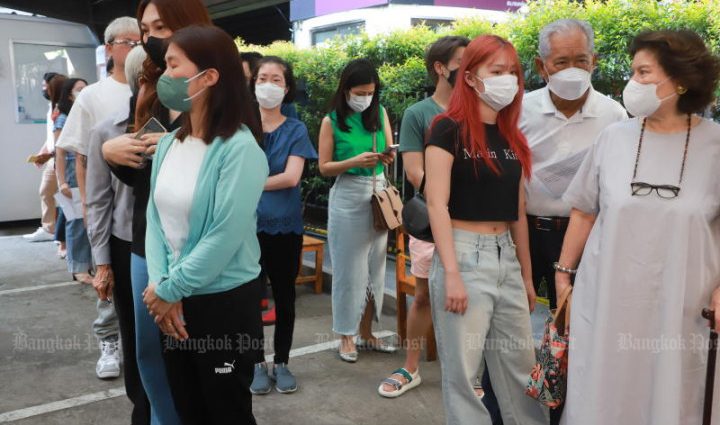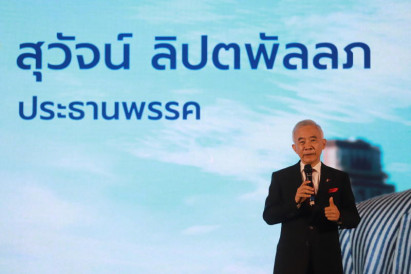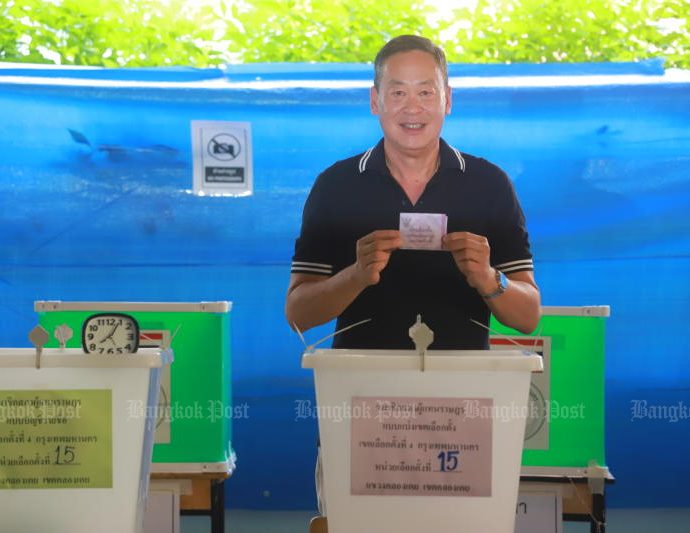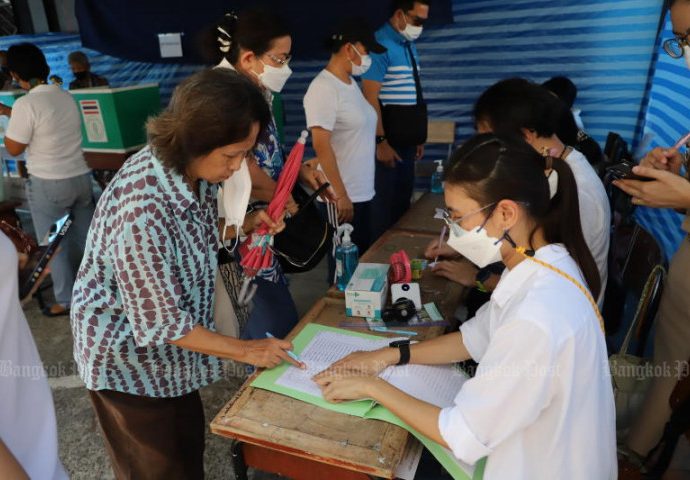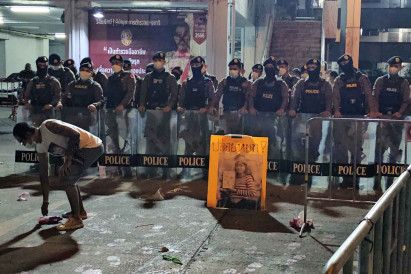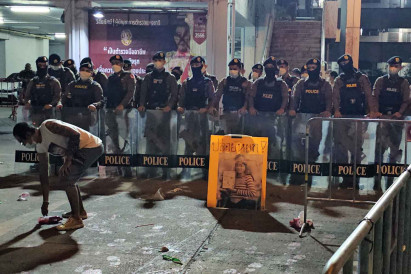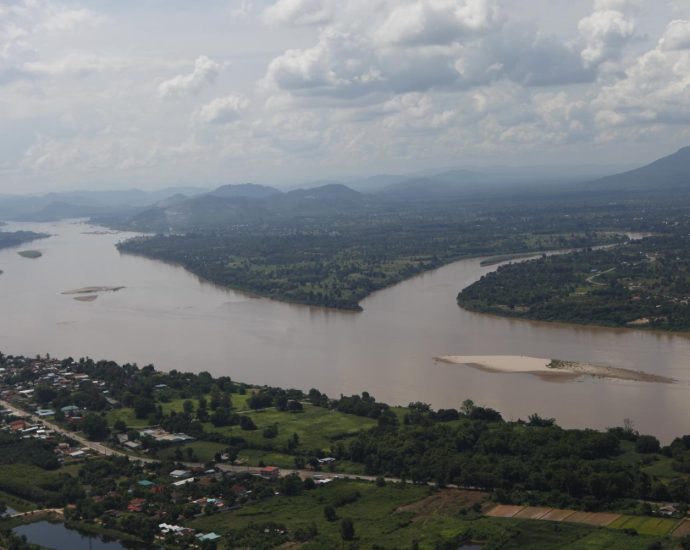Voting goes smoothly despite rain: Election Commission
High voter turnout and over 180 petitions filed with EC, says official

The general election on Sunday was proceeding smoothly, despite rain in some areas, with large numbers of people turning up to vote, Election Commission (EC) secretary-general Sawaeng Boonmee said.
Voters were seen queuing up at all polling stations in the morning, indicating high responsiveness, and there were no reports of traffic problems, Mr Sawaeng said.
Individuals who notice any mistakes by polling officials or encounter any inconvenience during the lead-up to the 5pm closing time can report them to officials at the polling stations, he added.
The commissioner warned that voters are prohibited from taking pictures of their marked or destroyed ballot papers, wearing shirts with party logos or candidate numbers, and taking ballot papers out of the voting area. Gambling on election results is also not allowed.
After voting closes, individuals or representatives from political parties can observe vote counting at all 400 polling stations nationwide.
Mr Sawaeng reported that 183 petitions have been filed with the EC so far, primarily regarding alleged vote-buying and campaign smears.

